Fortunately, things are slowly changing. The new crop of conscious consumers are actively seeking out brands that are kind to the planet, transparent about its products and fair to its people, and businesses are rising to the challenge.
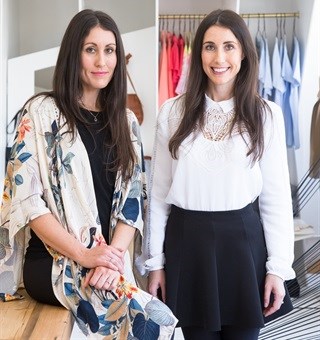
Trailblazing the local sustainable business scene is Cape Town-based ethical fashion and lifestyle brand, The Joinery. Owned by sisters Natalie and Kim Ellis, The Joinery strives to create clothing, accessories and bespoke products that boasts a "high-end design aesthetic with an African conscience". Merchandise is produced by sewing cooperatives and artisans based in and around the townships of Cape Town, using natural fabrics like Tencel, linen and hemp whenever possible, and fibres that are grown without the use of toxic pesticides and synthetic fertilisers.
"We work with suppliers that share our commitment to the environment by supporting practices that reduce their carbon footprint, opting for carbon-neutral or carbon-negative materials wherever possible," says Natalie. The company has become known for its attractive range of upcycled products and apparel made from recycled plastic bottles collected from around South Africa, saving them from landfill and dispelling the notion that eco-friendly can't mean fashionable.
In the spirit of Innovation Month, The Joinery founders shared with us how they're helping to cement South Africa's spot on the slow fashion map.
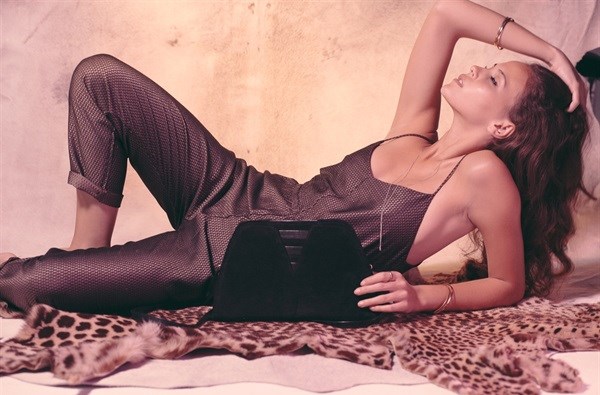
 What is The Joinery and how does it endeavour to be an ethical business?
What is The Joinery and how does it endeavour to be an ethical business?
Kim: The Joinery is a South African ethical and sustainable fashion label created to provide an alternative to traditional, often hazardous methods of production and fast fashion. We returned from London, after working for Burberry and Positive Television, with a hunger to work with and improve our own community in South Africa. We knew that we needed to marry our love and passion for fashion with strengthening and supporting our local industry and communities.
We uncovered a plethora of extremely talented seamstresses in the Cape Flats and in Cape Town who, due to the downfall of the South African textile and manufacturing industry, are highly skilled yet unemployed. We started working with a women's sewing co-operative in the Cape Flats to create our garments and a local artisan group in Khayelitsha to create our handbag range. For us, ethical and environmental go hand in hand, prompting us to use natural fabrics like hemp and to conceptualize our own recycled fabrics.
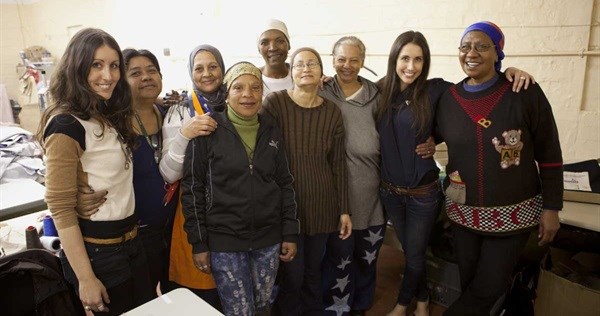
Established in 2012, The Joinery began as a dream to impact local communities through sustainable fashion and has since evolved into an enduring commitment to an environmentally and socially conscious approach to design. We wanted to start a movement and a culture where people understand the need for sustainable fashion but at the same time make people realise that sustainable and ethical can also be inspirational and luxurious. We believe ethical fashion and empowering our communities go hand in hand towards respecting people and our planet. Our manifesto is 'Do something. Anything.'
 As an ethical fashion and product brand, what are the main challenges you face?
As an ethical fashion and product brand, what are the main challenges you face?
Kim: The route we have chosen to be sustainable is the road less travelled and we are often faced with numerous challenges. Sourcing organic, natural and recycled fabrics is challenging here in South Africa. Our planet has reached a tipping point, and there is now no alternative but to move towards sustainable fashion. We are on a journey to educate ourselves in finding sustainable alternatives to current methods of production and fast fashion.
We are doing this by working with our suppliers to create new innovative sustainable fabrics which we can use in our collections. We believe conceptualizing our own recycled fabrics and empowering our communities are a fundamental path to overcoming some of the challenges we have been facing. Whenever we hit a stumbling block, we try to overcome this through innovation, and it is proving very successful for our business.
Another challenge we face is the intense gang warfare and crime in the areas where our sewing co-operatives are located. We are turned away on a daily basis by our ladies due to very real and tragic shootouts. We have to work around this and have always found a way. Usually, we organise transport for our ladies to come to us for meetings in our studio or we revert to good old FaceTime.

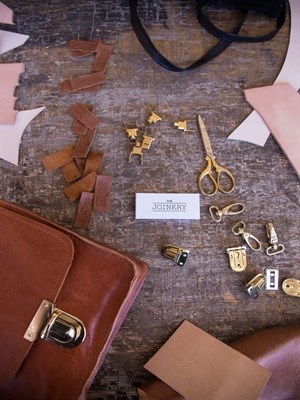
 Which fashion brands are a source of inspiration for you?
Which fashion brands are a source of inspiration for you?
Natalie: People Tree, Vivienne Westwood and Stella McCartney.
 Where do you rate South Africa on the slow fashion map?
Where do you rate South Africa on the slow fashion map?
Kim: We are proudly on the board of Fashion Revolution, encouraging consumers to ask: Who made my clothes?' Fashion Revolution is a global movement that runs throughout the year, celebrating fashion as a positive influence, raising awareness about the fashion industry’s most pressing issues, showing that change is possible and celebrating those who are on a journey to create a more ethical and sustainable future for fashion.
In South Africa, we are blessed with an industry that allows you to play and experiment while embracing the journey, and that allows us access to collaborate with raw, original talent. Our cultural heritage of craft and design means we can use these tools to empower our community and create beautiful authentic pieces. South Africa is inspired, it’s real and raw and designers are making it happen. There is a bubble up movement from street to studio. It’s unapologetic, refreshing and authentic and very focused on sustainable eco design.

Natalie: South Africans, we feel, have realised that we have reached the tipping point. Consumers, producers and retailers are all realising that there is no alternative but to start thinking sustainably, we cannot ignore it any longer. People are also realising how much better they feel buying products that have a positive traceable story, one they can pass down to their children and their children’s children. Consumers are realising that the power is in their hands and I feel that it is because consumers are starting to ask questions like ‘who made my clothes’ that the larger retailers are slowly starting to sit up and take notice. We believe the power lies with the consumer.
 What is the most important lesson you’ve learnt on your business journey so far?
What is the most important lesson you’ve learnt on your business journey so far?
Kim: It’s interesting, as a concept brand we are always learning, playing and experimenting which leads to us evolving. The biggest lesson we have learnt is not to be rigid but to be open to new paths that you may never have envisioned. We usually find these paths lead us to new fruitful, exciting and inspiring places.
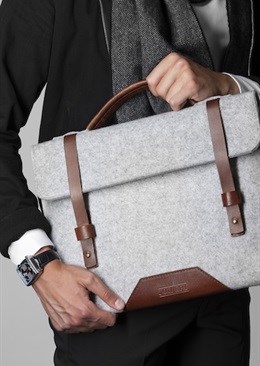
As a lifestyle brand as well as a fashion brand, another avenue our business has taken is creating sustainable bespoke products for corporate companies. We have recently created recycled plastic bottle tech accessories for Coca-Cola, recycled products for Investec, as well as high-end recycled plastic bottle felt tote bags for Petco, Design Indaba and Virgin to name a few. We are also expanding into styling for events, with sustainability and mindfulness at the heart of our events. We are finding our brand is coming full circle, closing the loop on living a sustainable lifestyle.
We like to say Dress. Work. Live sustainably!
 What does the future hold for The Joinery?
What does the future hold for The Joinery?
Natalie: We will continue our exploration of sustainable textiles on African soil. It is important for us to be forerunners in not only sustainable design but also in sustainable textile design. We are very excited to be conceptualising and creating bespoke responsible fabrics right here on African soil, proudly creating fabrics out of recycled plastic bottles collected here in the Western Cape, saving them from landfill. We create bespoke products from these fabrics. More importantly to keep finding solutions to problems we face in South Africa through design, like turning plastic and landfill issues into luxury products.
2017 sees the launch of a luxury handbag collection called the Artisanal Collection, which honours the style of the 1970s. The ultimate luxury is handcrafted, with more than a touch of African inspiration. Our leather bags are produced by talented artisans, a family-run leather workshop and each leather bag is made to last a lifetime.

The inspiration came from our mother. As young girls our mom, Miranda, was our style icon. She always, and still does, dress very fashionably in the latest trends. Her penchant for floating billowing sleeve maxi dresses with a chunky gold clutch bag, in particular, captured her daughters’ imaginations. We also loved hearing stories about our parents’ youth and what life was like in Durban in the 1970s. One of their favourite hangouts back then was the Cookie Look Club at the Claridges Hotel on the beachfront. It was here that one of the most famous bands of the day, the folk rock ensemble Four Jacks and a Jill regularly played.
Fascinated by all things rock, disco light filters and quintessentially 1970s South Africa we set about recreating this look and feel in our latest collection of accessories. Our Artisanal Collection of leather handbags was inspired by this era of disco, suede and fairy gold – marrying elements of the Bohemian with bespoke local craftsmanship. The signature piece in this collection is the 1970s style suede clutch, the Cookie Look.
For more info on collections and stockists visit The Joinery online. Connect with the brand on Instagram, Facebook and Twitter.
